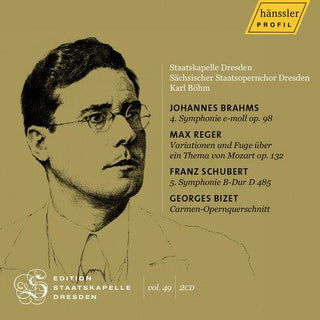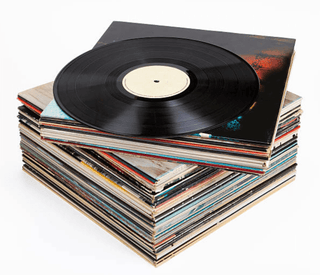Sachsischer Staatsopernchor Dresden- Bizet, Reger & Schubert: Edition Staatskapelle Dresden, Vol. 49 - Karl Bohm

Karl Bohm and the Staatskapelle of Dresden Historical Recordings 1937, 1939, 1942 "I headed the Sachsische Staatskapelle Dresden for nine years - the most wonderful and meaningful time of my life", wrote Karl Bohm in 1973 for the 425th anniversary of the orchestra. He was forty years of age in 1934, when he moved up the Elbe from Hamburg to assume direction of the Dresden State Orchestra and Opera. There, his sensitive yet dramatic style of conducting, his vigour and intellectual resilience, his feel for classical form and unerring sense of tempo (not to mention his strict discipline and utterly infallible hearing) very soon won the respect and trust of the musicians and singers in his charge; they did after all represent one of the best orchestras and most capable opera ensembles in Europe. Every season, Bohm conducted nearly all the Staatskapelle concerts and about 70 opera performances, setting new standards above all in the Mozart, Wagner and Strauss repertoire (including the world premieres of Die Schweigsame Frau and Daphne, the latter work being dedicated to him). In this extraordinarily extensive activity, he set his stamp on the ensemble, whose guest performances confirmed it's international ranking. Even in his first year in Dresden, he made recordings in the Semperoper, which always had to be especially prepared for the purpose. They included numerous individual symphonic works and items from opera, as well as lavish projects that were technically difficult to record at the time.
Karl Bohm and the Staatskapelle of Dresden Historical Recordings 1937, 1939, 1942 "I headed the Sachsische Staatskapelle Dresden for nine years - the most wonderful and meaningful time of my life", wrote Karl Bohm in 1973 for the 425th anniversary of the orchestra. He was forty years of age in 1934, when he moved up the Elbe from Hamburg to assume direction of the Dresden State Orchestra and Opera. There, his sensitive yet dramatic style of conducting, his vigour and intellectual resilience, his feel for classical form and unerring sense of tempo (not to mention his strict discipline and utterly infallible hearing) very soon won the respect and trust of the musicians and singers in his charge; they did after all represent one of the best orchestras and most capable opera ensembles in Europe. Every season, Bohm conducted nearly all the Staatskapelle concerts and about 70 opera performances, setting new standards above all in the Mozart, Wagner and Strauss repertoire (including the world premieres of Die Schweigsame Frau and Daphne, the latter work being dedicated to him). In this extraordinarily extensive activity, he set his stamp on the ensemble, whose guest performances confirmed it's international ranking. Even in his first year in Dresden, he made recordings in the Semperoper, which always had to be especially prepared for the purpose. They included numerous individual symphonic works and items from opera, as well as lavish projects that were technically difficult to record at the time.



